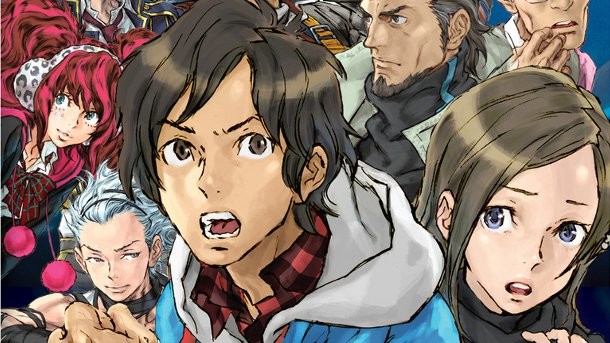The Emerging Visual Novel Trend: What Does The Future Hold?

Visual novels have a storied history in Japan, but they haven't really found a place in the Western market. Most visual novels feature anime visuals, which are still extremely niche in America. But in the last five years or so, visual novel-esque games have been making a stronger impact on gamers.
Many gamers don't know what a visual novel is. At its core, it's text overlaid on top of characters and environments. That doesn't mean that gameplay is completely vacant. Some mix in the adventure style point-and-click gameplay, have exploration, choices, or even puzzles. Usually, you interact with it in some way, although some visual novels are strictly text. The genre has no hard and fast rule, but usually the bulk of the experience is spent reading a great deal of text. In Japanese culture, where most people commute by trains, this sort of easily consumable media is incredibly popular.
While still a niche category stateside, more people are noticing and discussing these emerging games. Part of that is thanks to Aksys Games' localization of top titles like Nine Hours, Nine Persons, Nine Doors and Zero Escape: Virtue's Last Reward, our 2012 Handheld Game of the Year, which also won a slew of other awards from various publications. These darlings proved that strong psychological dilemmas can keep gamers on edge, providing the same adrenaline rush as action-packed gameplay.

Murder mysteries and science fiction trappings no doubt helped, but Nintendo is also due credit for providing a welcoming environment. Nintendo made the push to give gamers a taste of text adventures throughout the DS lifecycle. The platform introduced North American gamers to Phoenix Wright and other solid adventures, such as Hotel Dusk, Trace Memory, and Touch Detective. Putting these games on the DS made sense; the touchscreen was perfect for point-and-click controls. Funny enough, remember how PC adventures ruled the early 1990s? Nintendo gave the dying adventure-game genre exposure, allowing it the chance to thrive again. This exposed gamers to a slice of the visual novel experience.
Even with the support publishers like Aksys and NIS America give visual novels, I've always been hesitant about their place on this side of the Pacific. Are these gems just exceptions to the rule? A lot of visual novels come out in Japan, with varying degrees of quality and gameplay. Some lack any gameplay at all, while others make simple choices the entirety of the gameplay. Even more find their way to market only because of their sexual themes, made for a different audience entirely.
Lately, though, I've been thinking about how our gaming landscape is growing and how we define games is changing. Many gamers are looking for strong story experiences; look at the success of games like The Walking Dead and Gone Home. While both have limited gameplay compared to Call of Duty, they've catapulted to success entirely by putting narrative front and center. Device 6 is another good example of a story-based game that was well-received on iOS, making people pine for an experience like it on other platforms. More people are looking toward interactive fiction for their gaming experiences, which can only mean good things for the visual novel.

While I stay optimistic about this development, I'm also cautious about reading too much into it. Publishers must be selective over what types of interactive fiction they put out. If this growing trend is to sustain itself, quality is king, both in the source material and the localization. Otherwise we end up with games like Lux-Pain, marred by an amateur translation. Phoenix Wright and Zero Escape: Virtue's Last Reward are successful because they tell a compelling story and are extremely good at what they do. I find it telling that the graphic adventures from Japan that have been successful here deal with some psychological dilemma. I'm not saying that's the only way for these games to sell, but they need a hook that's going to keep people turning the virtual pages without much gameplay to rely on.
NIS America's upcoming Danganronpa: Happy Trigger Havoc is doing just that with using a Hunger Games/Battle Royale-style premise. Again, the suspense sells the story. Corpse Party used a similar tactic to keep audiences engaged, with an eerie setting and volatile scenes around every bend. Time will tell if visual novels outside the mystery genre can captivate North American audiences to the degree these games do. Aksys has brought one Otome (a dating simulation/visual novel where you play as a female character) game to market with success in Hakuoki. Throw in, Spike Chunsoft, who developed 999 and Zero Escape: Virtue's Last Reward, that just brought a visual interactive novel to iOS, entitled Banshee's Last Cry. The step shows more faith in these types of experiences for the English-speaking market.
That being said, the visual novel might have a future in our market, but it could also fade into the background. Handheld support has given it a new life, and as long as the stories remain well told and exciting, it can continue to prosper. We're still in a "will it or won't it" standstill, but in the meantime, I'm enjoying the text heavy games we do get - because sometimes I just like being bewitched by a story.

Get the Game Informer Print Edition!
Explore your favorite games in premium print format, delivered to your door.
- 10 issues per year
- Only $4.80 per issue
- Full digital magazine archive access
- Since 1991









